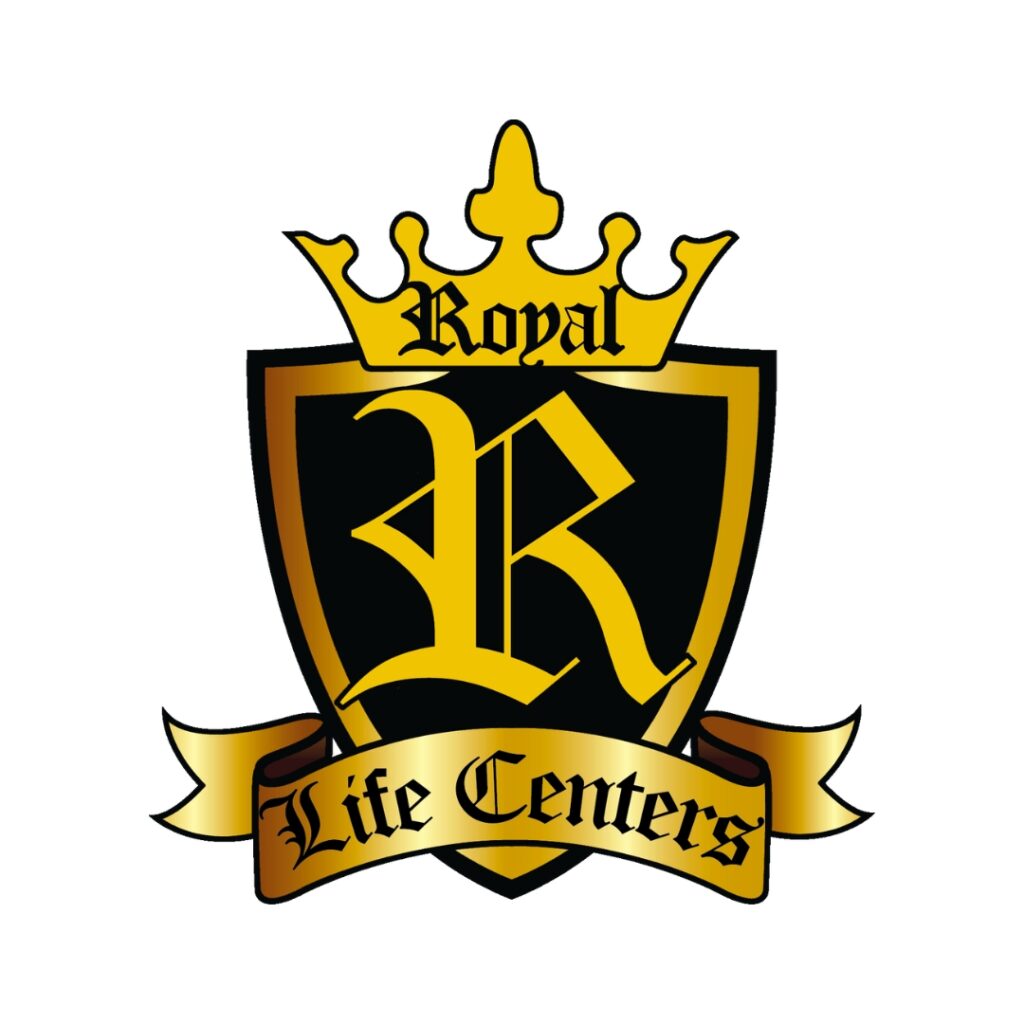Alcohol addiction can be one of the hardest substance abuse disorders to overcome because of the significant, very tangible ways it can alter your brain’s relationship with drinking, creating a vicious cycle that’s difficult to break. Alcohol detox in Washington State can help you get started.
Drinking activates the reward centers of the brain, reinforcing the desire to drink more. Over time, occasional use turns to chronic misuse and problematic abuse; tolerance turns to dependency, and then, eventually, addiction, as one’s body and mind both develop physical and psychological cravings for alcohol.
“The person no longer drinks alcohol for the pleasurable effects (‘high’), but rather to escape the ‘low’ feelings to which chronic alcohol misuse has contributed,” says the National Institute on Alcohol Abuse and Alcoholism. Trying to quit drinking at this stage can be difficult to do on one’s own since detoxifying your system from the ravaging effects of chronic alcohol abuse poses health risks best handled with the help of others.
When considering alcohol detox in Washington State, most people with an alcohol abuse disorder will be filled with questions. What does it involve? How long does it take? And most important, what are the many benefits of quitting alcohol?
Here’s a guide on what you can expect from seeking out detox at a rehab center in Washington State.
What Is Alcohol Detox?
Chronic alcohol consumption complicates your physical and mental health in numerous ways, but it significantly affects the liver and contributes to several types of liver disease.
Alcohol detox — the process of flushing and eliminating alcohol from your body — means your liver needs time to completely metabolize it. Depending on how heavy or long-term one’s alcohol use is, detox can be accompanied by several complications. Physically and emotionally challenging, these are best monitored by healthcare professionals at a Washington State drug rehab who can guide you through the stages of alcohol withdrawal.
According to the 2023 National Survey on Drug Use and Health, 2.2 million adults (7.8%) with alcohol abuse disorder received alcohol addiction treatment within that last year, a promising sign that detox and alcohol rehab in Washington State is effective, transformative, and can help you gain the clarity and understanding you need about your relationship with alcohol.
Detox occurs at a treatment center in Washington State (such as Royal Life Centers at the Haven). It is the very first step in the treatment continuum since it’s necessary to flush any last remaining substances from your system to be in the right physical and mental space to begin formal therapy. During detox at a substance abuse treatment center in Washington State, you’ll be helped by doctors, nurses, and support staff, which is a team combining clinical expertise and compassion in care.
Is It Safe to Quit Alcohol Cold Turkey?
The term “cold turkey” is a colloquialism for abruptly quitting an addictive substance. This approach can work for some people — for instance, people who want to quit smoking sometimes find success in making a hard stop to the habit.
Going cold turkey with alcohol may seem accessible at first, and that’s admirable when someone believes they have faith in their willpower to stop drinking quickly without any help.
However, what many people don’t realize is that alcohol withdrawal can be dangerous — even life-threatening in the most severe cases. That’s why a medically supervised medical detox for alcohol addiction at a Washington State alcohol rehab is so important because it pays attention to the problems that quitting drinking solo overlooks.
Quitting without medical help can pose serious consequences, but detoxing in a supportive environment with experienced staff, a safe, comfortable space, and medicine, when necessary, to help facilitate your recovery journey is essential.
Why Should Someone Stop Abusing Alcohol?
“There is no form of alcohol consumption that is risk-free,” says the World Health Organization (WHO). “Even low levels of alcohol consumption carry some risks and can cause harm.”
Why is the WHO’s stance significant? Alcohol consumption, it notes, plays a causal role in more than 200 diseases, injuries, and other health issues linked to developing liver and heart disease as well as various forms of cancer (including breast, liver, head and neck, esophageal and colorectal, notes the WHO), plus mental and behavioral health disorders, including depression and anxiety.
Take into account when alcohol misuse becomes abuse, and it doesn’t just affect the person drinking, rippling outward to impact family, friends, and so many aspects of your life. For instance, the WHO notes that “most alcohol-related harms come from heavy episodic or heavy continuous alcohol consumption,” where risky behavior such as drunk driving was attributed to nearly 300,000 deaths from alcohol-related traffic accidents in 2019. “Other injuries (linked to alcohol abuse), intentional or unintentional, include falls, drowning, burns, sexual assault, intimate partner violence, and suicide,” the 2024 WHO study notes.
Those are just some of the damaging effects of alcohol addiction. What are some of the benefits, short- and long-term, of quitting drinking?
Health Benefits
Years of chronic, heavy alcohol abuse can take a toll on the body — and when you stop drinking, your body begins to heal. Some benefits you may experience can include:
- Improved heart and cardiovascular health
- Weight loss from reduced caloric intake
- Increased likelihood of liver disease reversal
- Decreased cancer risk
- Improved complexion and skin health
Improved Cognitive Abilities
The buzz from an occasional drink may do little harm, but chronic alcohol abuse impairs cognitive functions like your memory, your focus, your ability to soberly make decisions, and even brain damage. Over time, quitting alcohol allows the brain to recover, leading to better mental clarity and sharper thinking.
In addition, stopping alcohol abuse can improve your sleep rhythms since drinking can disrupt breathing and REM sleep patterns, not to mention better attentiveness and concentration in school or at work, more energy, and less anxiety.
Improved Relationships
Alcohol addiction can strain even the closest relationships. “Heavy alcohol use has been associated with decreased relationship satisfaction, higher risk for marital distress, and more negative interactions between partners among adult married couples,” notes a study from the National Library of Medicine. But with recovery through alcohol rehab in Washington State, you have an opportunity to rebuild trust, improve communication, and reconnect with loved ones. (Eliminating alcohol may also have an improved effect on your sex life.)
More Joy in Life
In moderation, alcohol can boost your mood or help you relax or loosen up and even bond with others in a social setting. But when it becomes alcohol abuse and travels in the direction of addiction, alcohol can become a coping mechanism to stave off feelings of pain, depression, stress o,r low self-esteem brought on by drinking too much. Over time, it can rob your ability to experience authentic, genuine happiness.
Sobriety from drug rehab in Washington State opens that door to rediscovering what’s important to you in life, maybe even those things that alcohol abuse led you to forget, from your passions and interests to hobbies and activities that may have gone neglected in favor of drinking.
You’ll smile more, laugh more, appreciate every day for its gift, and find joy in everyday experiences that alcohol may have led you to take for granted.
Are you struggling with drug and alcohol abuse?
Royal Life Centers at The Haven is here to help you recover. Because we care.
What Is Alcohol Detox Like?
It’s OK to feel overwhelmed or nervous about entering a Washington State alcohol rehab for detox, especially if withdrawal symptoms became too intimidating after attempting to quit on your own. However, treatment for alcohol abuse in Washington State is meant to follow a specific timeline so treatment can reach its maximum efficacy.
Alcohol Withdrawal Symptoms
According to the Cleveland Clinic, alcohol withdrawal symptoms can begin within six to 24 hours of decreasing or stopping drinking and can include:
- Anxiety
- Sweating
- Nausea
- Tremors
- Seizures
- Delirium
- Confusion
- Hallucinations
- Increased heart rate/palpitations and blood pressure
- Physical imbalance
These are very real risks for long-term drinkers who stop abruptly, one reason why detoxing at a treatment center in Washington State (such as the Haven) makes sure symptoms of substance abuse disorders are carefully and steadily managed under medical supervision.
Medication-Assisted Treatment for Alcohol Detox
Sometimes, detoxing for more severe alcohol addictions may necessitate the help of administering medicines targeted and FDA-approved for certain substance abuse disorders. This approach, known as medication-assisted treatment, or MAT, is proven effective in Washington State drug rehab treatment programs.
Which MAT medications are used for alcohol abuse? According to the Substance Abuse and Mental Health Services Administration, drugs like acamprosate, disulfiram and naltrexone are commonly used to mitigate withdrawal symptoms in alcohol use disorder, easing both the physical and emotional ups and downs.
Evidence-Based Psychotherapy for Alcohol Detox
What comes after detox for drugs and alcohol? Once your system is cleared of alcohol and withdrawal symptoms have fully subsided, it’s time to begin therapy. Depending on your treatment plan, therapy such as cognitive behavioral therapy, or CBT, addresses the link between your cognition and your behavior in regards to alcoholism, studying the underlying causes of your alcohol use to develop healthier coping strategies.
Therapy is like polishing a dirty mirror to uncover the truth behind your addiction, to see your motivations better, and pave a clearer path forward where your view was previously obscured. Therapy like CBT is also evidence-based, meaning it has been scientifically proven effective over the years to help people conquer their addictions and get clean and sober.
Holistic Treatments for Alcohol Detox
Think of holistic therapy as representing your “whole” being — body, mind, and spirit — rather than just the symptoms of addiction. Yoga, mindfulness meditation, breathwork, sound healing,g and more are just as valuable as detox and talk therapy because they help you:
- Identify challenges and issues
- Uncover your underlying causes of addiction
- Explore emotions
- Reframe negative thinking patterns
- Build coping skills
- Become more relaxed
- Process trauma
- Develop relapse prevention strategies
Moreover, holistic therapy heightens your awareness as a sober person, living life aware in every moment with an acute understanding that your sobriety is too valuable to risk on relapse.
What Happens After Alcohol Detox in Washington State?
Detox is just the beginning of the road to recovery. Afterward, the journey takes several turns down other avenues and pathways, but at a treatment center in Washington State, some people may traverse down one street, others down another, depending on what their tailored treatment plan calls for. Here’s a look at what drug abuse treatment in Washington State might involve:
Inpatient Alcohol Addiction Treatment
Inpatient Washington State rehab treatment offers a structured, immersive environment where you’ll live onsite, without the triggers and distractions of the outside world, to commit your focus entirely to getting sober. Make it your mission by immersing yourself headlong into 24/7 recovery mode, where, through individual and group therapy, you gain a strong sense of community with other like-minded peers.
Outpatient Alcohol Addiction Treatment
For people who need more flexibility, or if you’ve finished an inpatient stint and are segueing out of treatment, an outpatient program enables you to attend therapy and counseling sessions while living at home. It’s a great option when you need to accommodate treatment alongside work, school or family obligations.
Aftercare and Sober Living in Washington State
Just as detox is the beginning of rehab, recovery doesn’t end when treatment does. What is aftercare? It’s a component of treatment where your care provider connects you with various resources to manage your sobriety. Our aftercare program at the Haven is a 12-week step-down program that seamlessly transitions you through levels of care and toward independence.
Think of aftercare as self-care: You can choose to exit treatment and stay for a time in a sober living home, attend 12-step and alternative recovery support meetings, or take advantage of job placement assistance and other wellness activities.
Is Alcohol Abuse a Problem in Washington State?
Problematic alcohol abuse touches the lives of people everywhere, but what about in the Pacific Northwest? According to the National Center for Drug Abuse Statistics, statistics highlight the urgency for treatment for alcohol abuse in Washington State:
- 15.4% of Washington adults binge drink at least once per month.
- An average of 3,184 annual deaths in Washington are attributable to heavy alcohol use.
- 64.6% of excessive alcohol use deaths are from chronic causes (e.g., Alcohol Use Disorder.)
- From 2015 to 2019, the annual rate of excessive alcohol deaths per capita in Washington increased by nearly 43%.
Finding Alcohol Detox Nearby in Washington State
If you or someone you love is ready to take the first step toward recovery, detox is where to start — the inaugural step to getting sober by gradually stopping alcohol use and managing withdrawal symptoms. Why are the Royal Life Centers at The Haven the best choice?
Here, find compassionate care in a supportive environment, where recovery — with an emphasis on balancing physical healing with emotional well-being — builds a foundation for your long-term sobriety. At a rehab center in Washington State, recovery is more than just detoxing; it is being present in a place where you feel safe, supported, understood, and cared for.
Recovery is a long journey, but it doesn’t have to be one traveled alone. Let us help you every step of the way by contacting us today.
- The Cycle of Alcohol Addiction | National Institute on Alcohol Abuse and Alcoholism (NIAAA)
- Effects of alcohol on health and liver – Mayo Clinic Health System
- Alcohol Treatment in the United States | National Institute on Alcohol Abuse and Alcoholism (NIAAA)
- Alcohol withdrawal Information | Mount Sinai – New York
- Alcohol
- Stages of Alcoholism: When Is It A Problem?
- The Short-Term and Long-Term Benefits of Quitting Alcohol – GoodRx
- Short and Long-Term Effects of Stopping Drinking Alcohol

- Is Valium Addictive? - August 27, 2025
- How Long Does MDMA Last? - August 13, 2025
- The Role Of Support Groups In Addiction Treatment - July 14, 2025


















